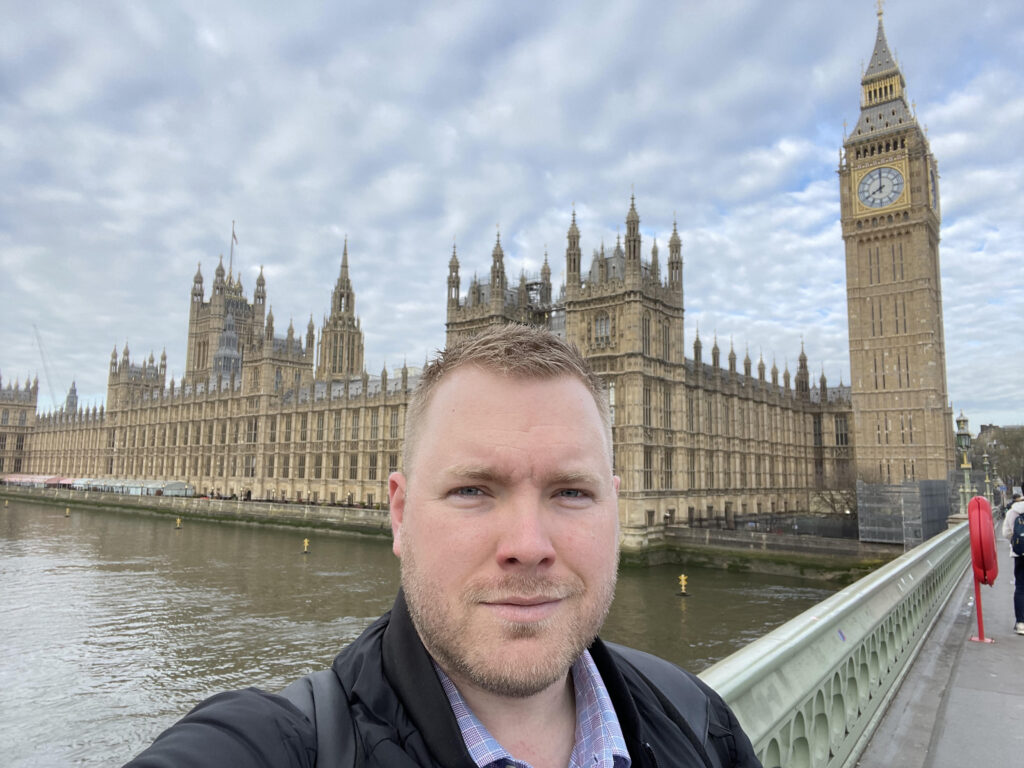Bio
Matthew Childs serves as Visiting Assistant Professor in the Department of German and Russian at Wake Forest University. Matthew earned his Ph.D. in German Studies at the University of Washington in Seattle and his B.A. and M.A. in German at Florida State University.
Matthew is a highly engaged teacher who is enjoying instructing a variety of classes at Wake Forest University. This fall semester, he is teaching GER 329 “Business German,” GES340A “Welcome to the Anthropocene: Contemporary German Culture and the Environment,” and GES340B “The Crisis of Civilization: Vienna around 1900.” His classes bring together highly contemporary issues and themes with innovative teaching practices, including the use of new teaching technologies like artificial intelligence. He provides a student-centered and task-based approach to instruction, while offering extensive one-on-one mentorship beyond the classroom.
Matthew’s scholarly approach is distinctly transhistorical, emphasizing the intricate connections between German literature and culture from the eighteenth to the early-twentieth century. His research centers on the intersections of the environmental humanities and intellectual history,
particularly through the lenses of catastrophe, critique, and energy, as well as the German history of race, colonialism, and imperialism. His current book project, Catastrophe and Critique: A Dialectic of German Modernity, develops a non-negative and immanent theory of catastrophe, based on works by Johann Wolfgang von Goethe and Walter Benjamin, for the purpose of breaking the destructive tendencies of the dialectical arrangement of catastrophe and critique going back to the eighteenth century. For more details on his scholarly activity (e.g., publications, conference participation, etc.), please consult his profiles at academia.edu, LinkedIn, and the Umwelt Center for Germanic Studies and Environmental Humanities, or reach out to him via email.
Matthew is an editor at Augenblick, a University of British Columbia-based journal focused on the publication of undergraduate research in the field of German Studies.
Education
Ph.D. University of Washington

